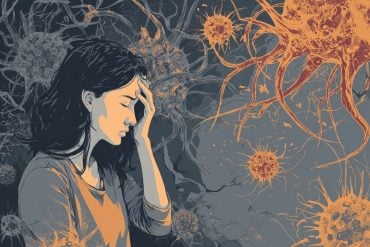Summary: A new study delves into the relationship between antidepressants and memory dynamics. The study reveals that these drugs may dampen negative memories and bolster overall memory function in individuals with depression.
However, the intricacies of how antidepressants exert their effects remain elusive, with only a 50% efficacy rate. The study emphasizes the need to explore further how these medications influence cognition to optimize treatment choices.
Key Facts:
- The study titled “Perceived antidepressant efficacy associated with reduced negative and enhanced neutral mnemonic discrimination” suggests a potential link between antidepressant usage and enhanced memory function.
- Despite antidepressants being used since the 1950s, their precise mechanism of action remains a mystery, with effectiveness observed in only about half of the users.
- Rice University’s research involved 48 participants aged 18-35, all of whom had been on antidepressants for at least a month, paving the way for a follow-up study to observe brain responses.
Source: Rice University
New research from Rice University finds that antidepressants may actually reduce negative memories in individuals suffering from depression while improving overall memory function.
The study, “Perceived antidepressant efficacy associated with reduced negative and enhanced neutral mnemonic discrimination,” appears in the latest edition of Frontiers in Human Neuroscience. It examines how antidepressant use in depressed individuals affects memories, both good and bad.
Stephanie Leal, an assistant professor of psychological sciences at Rice, is the study’s lead author. She said the study’s main finding about the link between antidepressants and memories was an important one, because there is still much to be learned about how these drugs work.
“While antidepressants have been around since the 1950s, we still don’t really know how they work,” Leal said.
“They only work about 50% of the time, and users often have to go through multiple types of antidepressants to get to a place where they actually feel like the drugs are beneficial. We don’t fully understand how these drugs reduce depressive symptoms and why they are so often ineffective. That’s a big problem.”
The study’s results suggest that antidepressants, when effective, can shift memory dynamics toward healthy function, Leal said.
“How antidepressants affect cognition is a hugely understudied area of research,” she said. “By measuring how antidepressants impact memory, we can use this information to better select treatments depending on people’s symptoms of depression.”
The study included 48 participants ages 18-35. All individuals were surveyed and had been actively taking antidepressants (regardless of the type of antidepressant and diagnosis) for at least one month prior to participation in the study.
A follow-up study is currently being conducted to examine how the brain responds to antidepressants. To learn more about the study, visit http://memory.rice.edu/participate-in-a-study/antidepressant-neuroimaging-study.
About this psychopharmacology and memory research news
Author: Amy McCaig
Source: Rice University
Contact: Amy McCaig – Rice University
Image: The image is credited to Neuroscience News
Original Research: Open access.
“Perceived antidepressant efficacy associated with reduced negative and enhanced neutral mnemonic discrimination” by Stephanie Leal et al. Frontiers in Human Neuroscience
Abstract
Perceived antidepressant efficacy associated with reduced negative and enhanced neutral mnemonic discrimination
Introduction: While antidepressants are one of the first-line treatments for depression, the mechanisms underlying antidepressant action are unclear. Furthermore, the extent to which antidepressants impact emotional and cognitive dysfunction in depression requires more fine-grained approaches toward measuring these impacts in humans.
Depression is associated with emotion and mood dysregulation in addition to cognitive deficits. Depressed individuals experience general memory impairment as well as a negativity bias in episodic memory, where negative events are better remembered than positive or neutral events.
One potential mechanism hypothesized to underlie the negativity bias in memory is dysfunctional hippocampal pattern separation, in which depressed individuals tend to show impaired general pattern separation but enhanced negative pattern separation. Mnemonic discrimination tasks have been designed to tax hippocampal pattern separation in humans and provide a powerful approach to develop a mechanistic account for cognitive dysfunction in depression.
While antidepressants have been examined primarily in rodent models in the context of hippocampal pattern separation, this has yet to be examined in humans.
Methods: Here, we investigated how antidepressant usage and their perceived efficacy was associated with emotional mnemonic discrimination, given our prior work indicating a negativity bias for mnemonic discrimination in individuals with greater depressive symptoms.
Results: We found that individuals who reported a greater improvement in their depressive symptoms after taking antidepressants (responders) showed reduced negative and enhanced neutral mnemonic discrimination compared to those with little to no improvement (non-responders). Perceived antidepressant efficacy was the strongest predictor of a reduction in the negativity bias for mnemonic discrimination, even when controlling for current depressive symptoms, antidepressant type, and other relevant factors.
Discussion: These results suggest that antidepressants, when effective, can shift memory dynamics toward healthy function.







